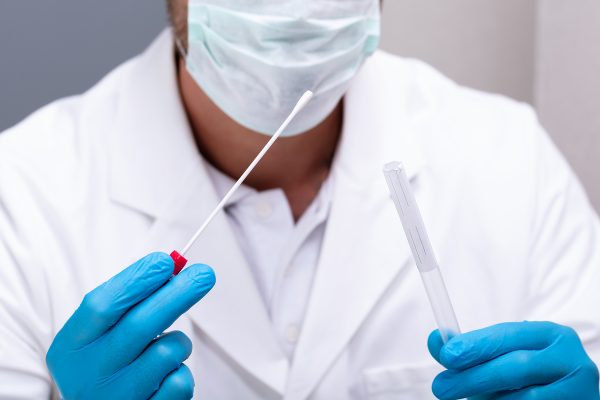
COVID19 Testing Types (Diagnostic and Antibody)
COVID19 has affected everyone around the world in one way or another. We are learning more and more about this novel virus all the time. Over the past 11 months, one of the greatest improvements has been the availability of testing. The more we can test for this infection, the more we can learn and the better the outcomes for individual patients and the community as a whole.
There are two main types of tests: diagnostic tests and antibody tests.
- Diagnostic tests look for an active infection. There are antigen and molecular diagnostic tests that can detect different components of the virus in your body.
- Antibody tests look for antibodies to the coronavirus indicating that you were infected in the past. Your immune system makes specific antibodies to specific infections in the days and weeks following the infection. It is still unknown how long antibodies to COVID19 will last and if they confer immunity if you were to be infected again.
Let’s dive a little deeper into the different types of diagnostic tests. Both types are typically nasal or throat swabs to obtain the sample.
- Antigen tests (aka rapid tests). As the name “rapid test” implies, the turnaround time is fast. Depending on the type of test, it can be 15 minutes to an hour for results. These tests look for specific proteins from the coronavirus to detect an active infection. These tests cannot tell you if you were infected with COVID19 in the past.
- Molecular tests (aka PCR tests). These tests look for specific RNA or DNA components of the virus in your body, which would indicate an active infection. These tests usually take longer for results- same day or up to 7 days, depending on the lab performing the test. These tests cannot tell you if you were infected with COVID19 in the past.
How accurate are these different types of tests?
- Each brand of test is going to have a variable accuracy rate. Overall, a rapid test is very accurate if positive, but will be less accurate if negative. Another way to put that is there will be more false negatives than false positives. This means your healthcare provider may recommend confirming a negative rapid test with a PCR test if they are concerned about an active COVID19 infection.
- PCR tests will typically have a very high accuracy rate for both positive and negative results. For this reason, many healthcare providers will prefer to obtain PCR testing in order to get the most accurate result for their patients.
With so many symptoms being linked to COVID19, it is likely that your healthcare provider may recommend COVID testing for you if you become sick. Discuss with them which type of testing is available, how accurate are their tests, and how long will the results take.
It is also important to discuss when is the best time to be tested. South Carolina DHEC recommends being tested no sooner than 7 days after last possible exposure to an infected person if you are asymptomatic. If you are tested too early, you may end up with a negative result just because the test was unable to detect the virus in your system at that time. It is recommended that you get tested immediately if you develop symptoms.
***Also, word to the wise- no matter what type of diagnostic test you undergo, it’s uncomfortable. Unfortunately, there is no getting around that. Close your eyes, take deep breaths, and hold still. And keep your mask over your mouth to protect your provider if you happen to cough or sneeze!
Sources:
https://www.fda.gov/consumers/consumer-updates/coronavirus-testing-basics
https://scdhec.gov/covid19/frequently-asked-questions-covid-19
